Sudanese Minister of Investment Mubarak Al-Fadil Al-Mahdi said that the Arab countries have "peddled in the Palestinian cause ad nauseam" and that normalization of ties with Israel should be determined on the basis of Sudan's interests. "I don't think it is such a big deal," he said. "The Palestinians themselves have normalized their relations with Israel." Speaking on Sudania 24 TV on August 21, Al-Mahdi praised Israel's democratic and transparent regime and the introduction of Israeli citrus agriculture and drip irrigation in Egypt. Asked whether he was planning to bring Israeli companies to Sudan, he responded: "Technology has no nationality."
Speaking along similar lines, Sudanese cleric Yousuf Al-Kodan called, at a February 6, 2017 conference in Khartoum titled "On [Religious] Awakening and Dialogue," for a truce between Sudan and Israel and for the establishment of diplomatic relations between the two countries, saying that this would be permissible according to shari'a.
The following are the MEMRI TV clip and transcript of Minister Al-Mahdi's statements and the MEMRI report on Al-Kodan's statements.
Sudanese Minister Mubarak Al-Mahdi: Normalization With Israel No Big Deal; Arabs Have Peddled Palestinian Cause Ad Nauseam
To view the clip of Mubarak Al-Fadil Al-Mahdi on MEMRI TV, click here or below.
Mubarak Al-Fadil Al-Mahdi: "Haven't the people of Darfur fled to Israel from the hardships in Sudan? Haven't they found out that there is nothing wrong with Israel, as far as they are concerned? That's a whole other philosophical debate. I have my own opinion about the Palestinian cause, Israel, and all that. I think that people are more emotionally invested in this than reality warrants."


Interviewer: "How exactly?"
Mubarak Al-Fadil Al-Mahdi: "That's my opinion. I think that the Palestinians share much of the responsibility for what has happened to them. They sold their lands and caused many problems. The Arabs made grave mistakes by rejecting the Partition Plan and other resolutions. The Arab countries peddled in the Palestinian cause. Whenever someone stages a coup, he says it's for the liberation of Palestine... They have peddled in the Palestinian cause ad nauseam. It has become a political commodity in the Arab world."
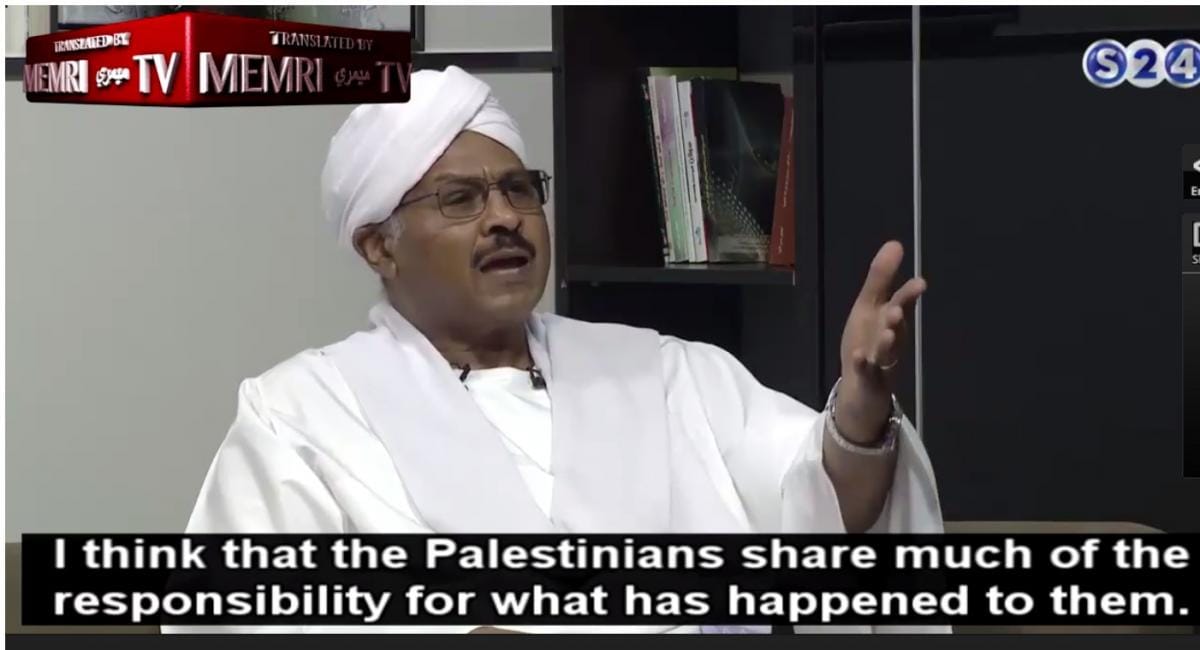

Interviewer: "If we were offered normalization of our relations with Israel... As a politician, would you support or oppose this?"
Mubarak Al-Fadil Al-Mahdi: "I would consider it in accordance with the interests of Sudan. Right now, tonight..."
Interviewer: "I would decide according to the interests of Sudan... Is normalization of relations with Israel in our best interest or not?"
Mubarak Al-Fadil Al-Mahdi: "I don't base this on emotions, but on the interests of Sudan. All the countries have normalized their relations with Israel."

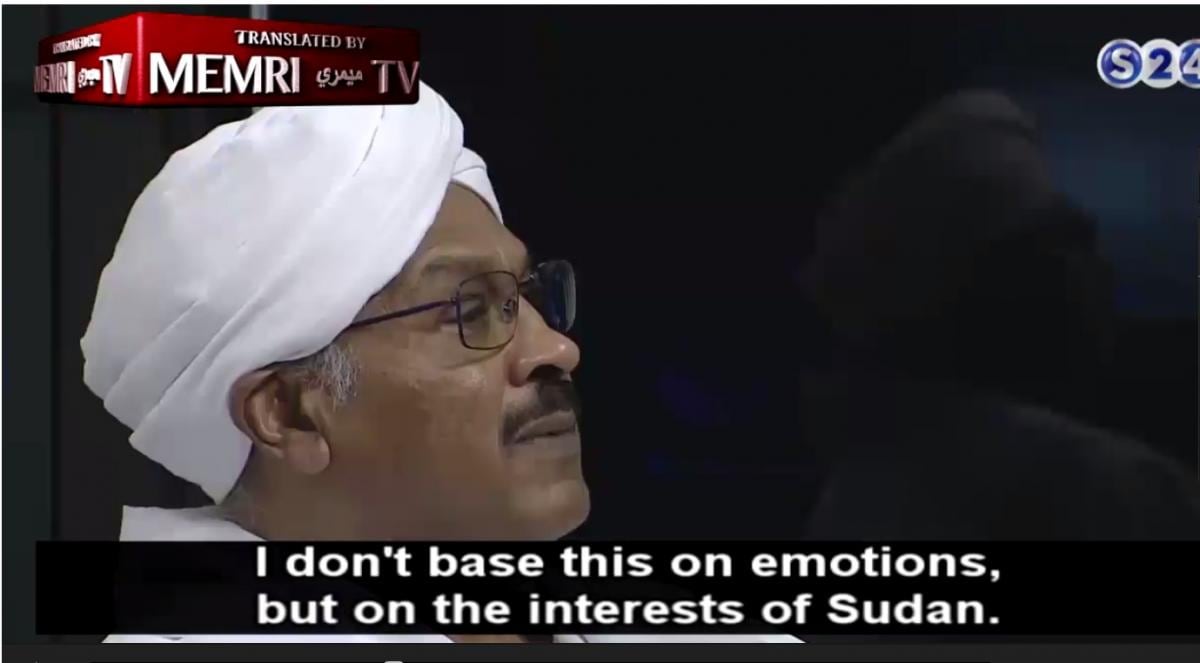
Interviewer: "So you do not object to such normalization?"
Mubarak Al-Fadil Al-Mahdi: "I don't think it is such a big deal. The Palestinians themselves have normalized their relations with Israel.
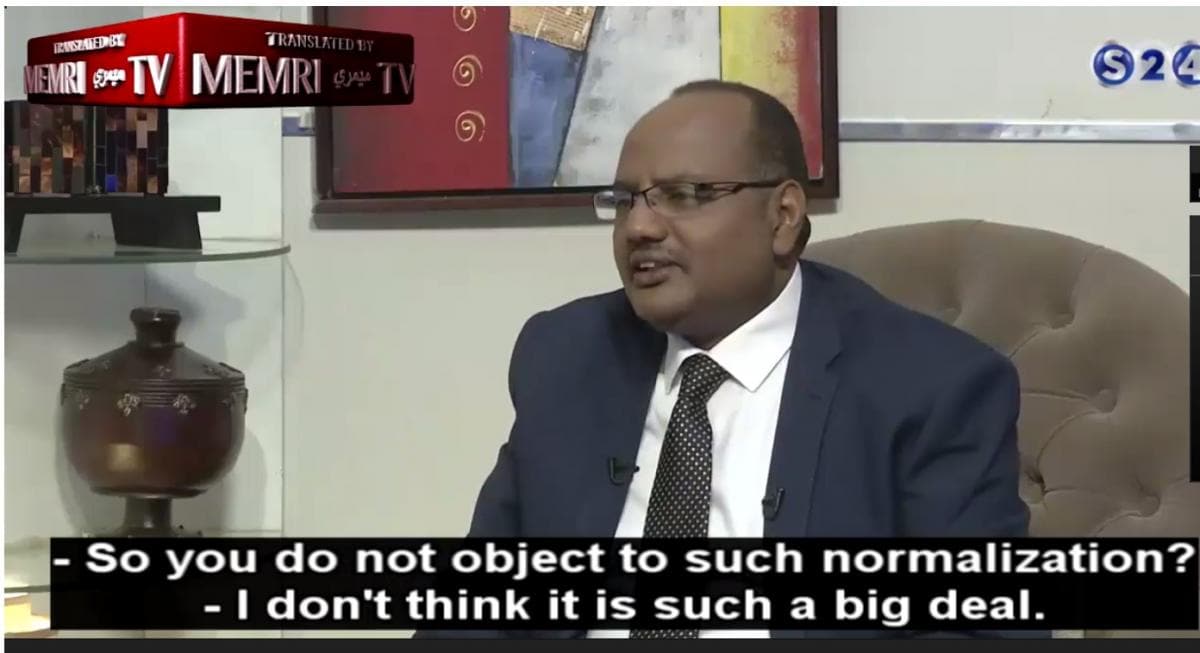
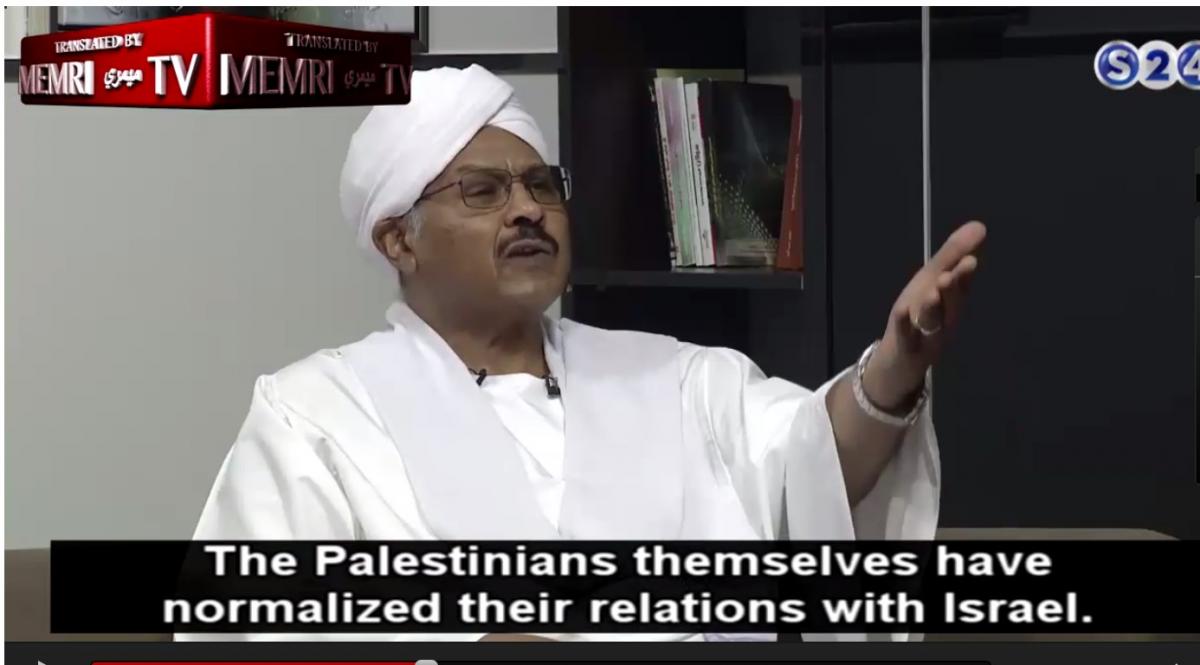
SUPPORT OUR WORK

[…]
"The entire issue is very complex. It's not black and white. The Palestinians themselves meet with the Israelis. They coexist with the Israelis, earn their living there, and get their electricity from them. These people live together.
[…]
"I believe that the Palestinian cause has delayed the progress of the Arab world, and has been exploited by the Arab regimes to oppress their peoples, under the guise of the struggle for the sake of Palestine. I believe that the Palestinians are handling their cause by themselves. They are meeting with the Israelis. Even Hamas. Disagreements or not, they are meeting with them. They have the Oslo Accords and other agreements. The Arab countries think about their own interests. In Egypt, the Israelis developed the citrus agriculture. They introduced drip irrigation. Yousef Wali did great things with them."
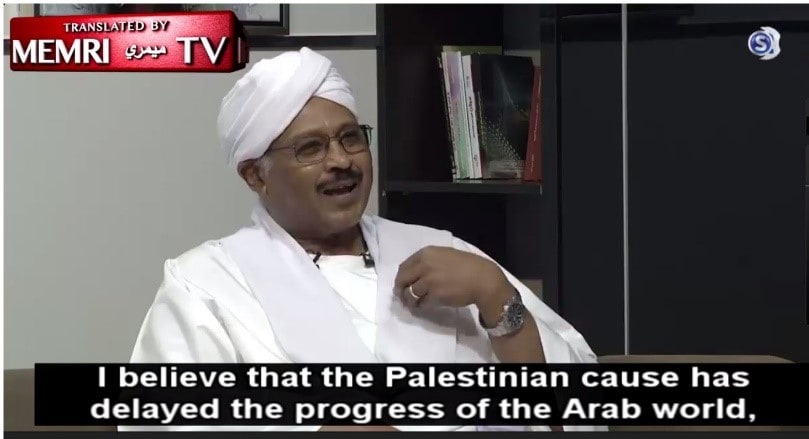
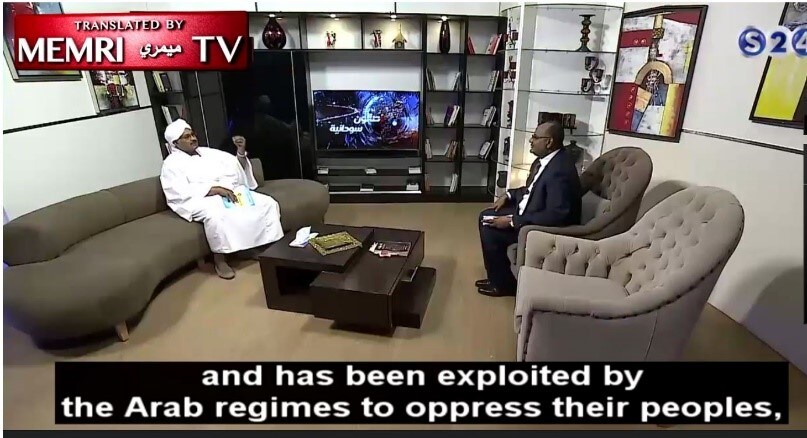
Interviewer: "You don't plan, as Investment Minister, to bring Israelis here, do you?"
Mubarak Al-Fadil Al-Mahdi: "I am not a zealot. I don't believe that now, with the history of that movement... I think we have been swept away by our emotions without realizing it. Those Palestinians, everywhere, do anything in their power to have you fired. Ask any Sudanese working in the Gulf or anywhere, and he will tell you that whenever he meets a Palestinian, that Palestinian feels nothing for him. He's immediately plotting how to get me fired from the company. They are ungrateful for the empathy they received from the Arab world."
Interviewer: "What about the Israelis?"
Mubarak Al-Fadil Al-Mahdi: "We haven't dealt with the Israelis. The Israelis are Westerners. They were 'imported' from America, Russia, Europe, and so on. They have the moral values of Westerners. They operate scientifically. They have a democratic regime, their presidents stand trial and go to jail... They have a transparent regime, whether you agree with them or not."




Interviewer: "You're not planning to get some Israeli companies here to develop citrus for us, are you?"
Mubarak Al-Fadil Al-Mahdi: "Well, I think that technology has no nationality. You shouldn't care where you get that technology from."


Sudanese Cleric: Islamic Shari'a Permits Normalizing Relations With Israel
In a conference titled "On [Religious] Awakening and Dialogue," held in the Sudanese capital of Khartoum on February 6, 2017, Sudanese oppositionist and cleric Yousuf Al-Koda, a former member of the Sudan Scholar Organization and currently the head of the Islamic Wasat Party, gave a talk on "The Relations with Israel – Religious Aspects." In his talk he called on Sudan to declare a truce with Israel and establish diplomatic relations with it, saying that there is no religious prohibition to prevent this. As evidence he mentioned the Hudaibiya agreement that the Prophet Muhammad signed with his infidel rivals.
Al-Koda added that boycotting Israel does not hurt Israel but rather Sudan, and that other countries in the region, such as Turkey, Qatar, Jordan, Egypt and even the Palestinian Authority, maintain ties with Israel. He noted further that Sudan holds ties even with certain countries that occupy Sudanese land, without naming these countries.
The following are excerpts from media reports on Al-Koda's statements at the conference.
According to a report on the news website Sudanese Online, "Al-Koda said that, regardless of his opposition to any occupation of land, the occupation of the Al-Aqsa Mosque does not prevent establishing relations with Israel. As evidence he presented the Hudaibiya agreement[1] that the Prophet Muhammad signed with the infidels even though the infidels had taken over the Kaaba and even though most of the [agreements'] clauses were detrimental to the Prophet's companions. As further [evidence] he mentioned that the Palestinian Authority itself maintains ties and [security] coordination with Israel. [He added that] neighboring sister states are occupying land in northern and eastern Sudan, but this has not prevented [the Sudanese government] from maintaining close relations with them, and that some Arab and Muslim countries have relations with Israel."[2]
The website quoted Al-Koda as saying: "The fact that Jerusalem is in the hands of the Jews should not prevent us from maintaining ties with them, if the people want this. I am not saying we are obligated to maintain ties with them. My statements are not meant to [urge people] to go and establish ties [with Israel]. I merely want to clarify that this is perfectly permissible according to the Muslim shari'a and that there is nothing wrong with it."
He was also quoted as saying: "The boycott has not harmed Israel but rather Sudan, and despite all the time that has passed [since its imposition] there has been no discussion of the boycott, as though it is an end in itself or a religious duty." He wondered: "Why shouldn’t we propose reassessing this position and adopting a different one in its place?"
According to the report, Al-Koda said that "as an observer, he had noticed that Israel was now ready to hold ties with Sudan and with other countries and that he did not think this was a problem. He clarified that relations with Israel did not mean avoiding talking about the settlements or about Israeli violations."
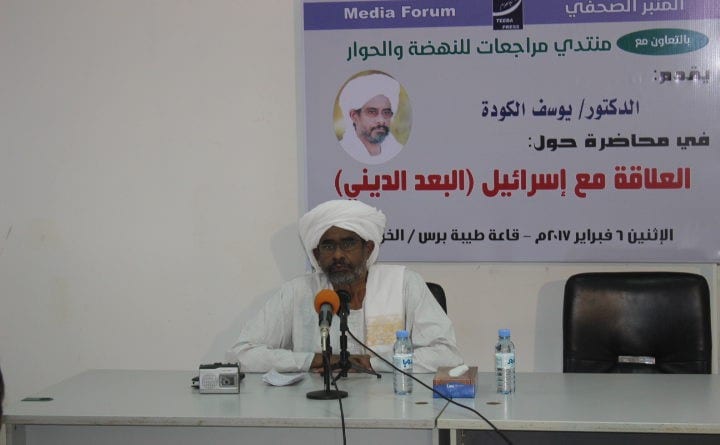
Al-Koda delivering his address at the conference (Al-Jamahir, Sudan, February 6, 2017).
Al-Koda added: "The Prophet's biography tells not only of fighting but of warding off danger and of reconciliations, truces and alliances... Why then do we know only about the fighting and the jihad, as though they are the only option and there is no other option, in any form and under any circumstances?"[3]
According to a report in the newspaper Al-Jamahir, Al-Koda said in this context: "Why do we not declare something other than jihad and fighting? I prefer [to declare] a truce [with Israel]. A truce does not mean making concessions. Very powerful countries that are not major parties [in the Israeli-Palestinian conflict], including Turkey, Qatar, Jordan and Egypt, have normalized [relations with Israel]."[4]
Speaking on Sudania 24 TV two days after the conference, on February 8, Al-Koda repeated his statements, saying the shari'a does not prohibit normalization of ties with Israel, and stressing that normalization with any country – not just Israel but also the U.S. and Russia – would promote stability and peace. In response to the interviewer's comment that, even if Al-Koda advocates normalization of ties with Israel for the sake of promoting Sudan's interests, he should not use religion to justify this, Al-Koda replied: "Do you really think that religion has nothing to do with interests? Religion is based entirely on interests." For a MEMRI TV clip of his statements, click on the player below.
According to the Sudanese newspaper Al-Jarida, Al-Koda claimed that people had threatened to kill him if he delivered the talk and "opened the gates of evil," but that he was willing to risk his life and even the lives of his children in order to express his opinion.[5] Another report in the same newspaper stated that Al-Koda's remarks elicited a response from 'Abd Al-Rahman 'Abdallah, the representative of the Al-Tahrir party at the conference. The latter "condemned [Al-Koda] for presenting [the fact that] that some [Muslim] countries do not boycott Israel and that even Palestinian President Abu Mazen maintains ties with it as evidence for his position, saying that 'people's behavior does not constitute evidence [that something is sanctioned by the Islamic shari'a].' ['Abd Al-Rahman 'Abdallah] also criticized the Sudanese government for normalizing relations with the U.S., seeing this as [a step] towards normalizing relations with Israel and adding that this was 'a twofold [act of] treason'... Al-Koda responded that 'even the Hamas leadership is funded by Qatar, which maintains normal [relations] with Israel, and noted that Sudan was unable to confront Israel [militarily]. The Al-Tahrir party representative interrupted him, saying: 'The Muslims are capable of defeating Israel,' to which Al-Koda replied: 'You cannot defeat Israel by sitting at home.'"
Al-Koda, said the report, "claimed that Sudan had lost a lot by declaring its hostility to Israel, and added: 'Sudan lost on the moral and material level when Israel breached its sovereignty by staging attacks on its soil, and [also] due to all the damage done to it by the U.S. because of its bad relations with Israel.' He denied that the [Sudanese] government was behind his initiative, saying that he still opposes the government. He explained that his call to reassess the position on Israel stemmed from a wish to stimulate public debate on this issue."[6]
[1] In the agreement, signed between the Prophet Muhammad and his Meccan rivals in 628 for a period of 10 years, the Prophet accepted the humiliating terms dictated by his rivals, recognizing his inferior strength. The agreement was violated two years later, with Muhammad's conquest of Mecca.
[2] Al-Koda said he did not wish to name the countries occupying Sudanese land. See Al-Jamahir (Sudan), February 6, 2017.
[3] Sudaneseonline.com, February 6, 2017.
[4] Al-Jamahir (Sudan), February 6, 2017.
[5] Facebook.com/aljareeda.sudanese.newspaper, February 7, 2017.
[6] Facebook.com/aljareeda.sudanese.newspaper, February 7, 2017.




